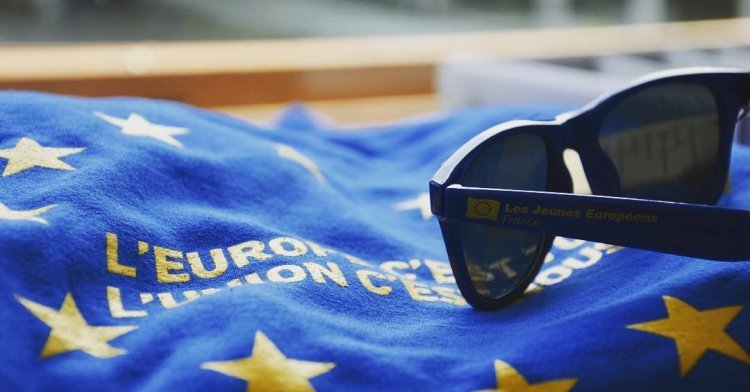The Nuclear industry and radioactive waste in the EU: overview
Only 13.5% of the electricity combustion in Europe come from nuclear energy [1] A total of 195 nuclear reactors are running in the member states (note: a power plant usually contains several reactors). Those reactors are producing 170 GW of electricity, which is 17% of the total production capacity in Europe [2]). By comparison, a coal power plant produce about 700MW, we would need 243 of those coal plant to produce as much electricity as the nuclear power plants.
All those nuclear power plants produce about 85 thousand cubic meters of radioactive waste each year. Most of this waste is short lived (the radioactivity disappears after a few years max), 280 m3 are highly radioactive and 5100 m3 have a medium radioactive but are very long lived (more than a century will be needed for the radioactivity to decrease) (number for y2004).
Radioactive waste are reprocessed and sorted: part of it can be re-used as fuel en the short-lived one are separated from the ones that will take several decades to be safe to handle. For the later, the only solution at the moment is to deeply bury them.
Legislation on waste processing and management
In the European legislation, reminded last November in a draft directive, the radioactive waste management is the responsibility of the member states, In particular, the waste have to be stored in the country where they have been produced. This lead to shipments of radioactive material, for example, between France and Germany, when the spent fuel from the German power plants is reprocessed in France and then sent back in Germany to be stored or disposed of.
This approach « your waste, your problem » is the source of some issues : first, because of round trips of nuclear waste between the production and the processing countries. Then, because the requisites for a good deep repository are not easy to find in every country and a better storage might be possible if the waste were buried wherever it is safer.
In fact, even if some member states rejected the use of nuclear energy within their borders, or use it in little proportion, they end up importing electricity from their nuclear-using neighbors. As an example, France, which produces a lot of electricity from nuclear energy, is exporting each year as much electricity as the total yearly energy consumption of Luxembourg.
The Euratom agency ensures the fuel supply for nuclear reactors and controls the respect of the security and transparency required from the actors of the nuclear industry ; however, it does not take any active part in the management of radioactive waste.
What technical solution to process the radioactive waste ?
Several solutions exist to process the waste and avoid having to bury them for centuries:
– Recycle : new fuel cycles are under study, that will transform today’s waste in tomorrow’s fuel.
– Transmutation: nuclear science allow elements transmutation. Here, we won’t turn lead in gold, but, by submitting radioactive waste to irradiation, transform it in other elements, more stable or with a shorter radioactivity life. That would reduce the need of long term deep storage.
– Sub-critical processing, or Accelerator Driven System: sub-critical systems are combining the two previous solutions. A proton beam is used to transmute the radioactive elements and release the radioactivity, that produces heat which is collected and turned into electricity like in a traditional reactor.
Those solutions are highly technical and hard to implement because they need specific installation and an heavy reprocessing work; this are not economically viable yet. Waste processing being for the moment a question let to the member states, there is not enough incentive for anybody to invest in the alternative technologies.
Radioactive waste is, by itself, an important challenge of the nuclear industry. There is no pan-EU politic of waste processing and disposal, member states are taking their responsibility on this. But, as it has often been said, the nuclear issue concerns all of us, whether we are actively using it or not. The Euratom frame exists and should play an bigger role for a common management of the radioactive waste in the future.


Follow the comments: |
|
